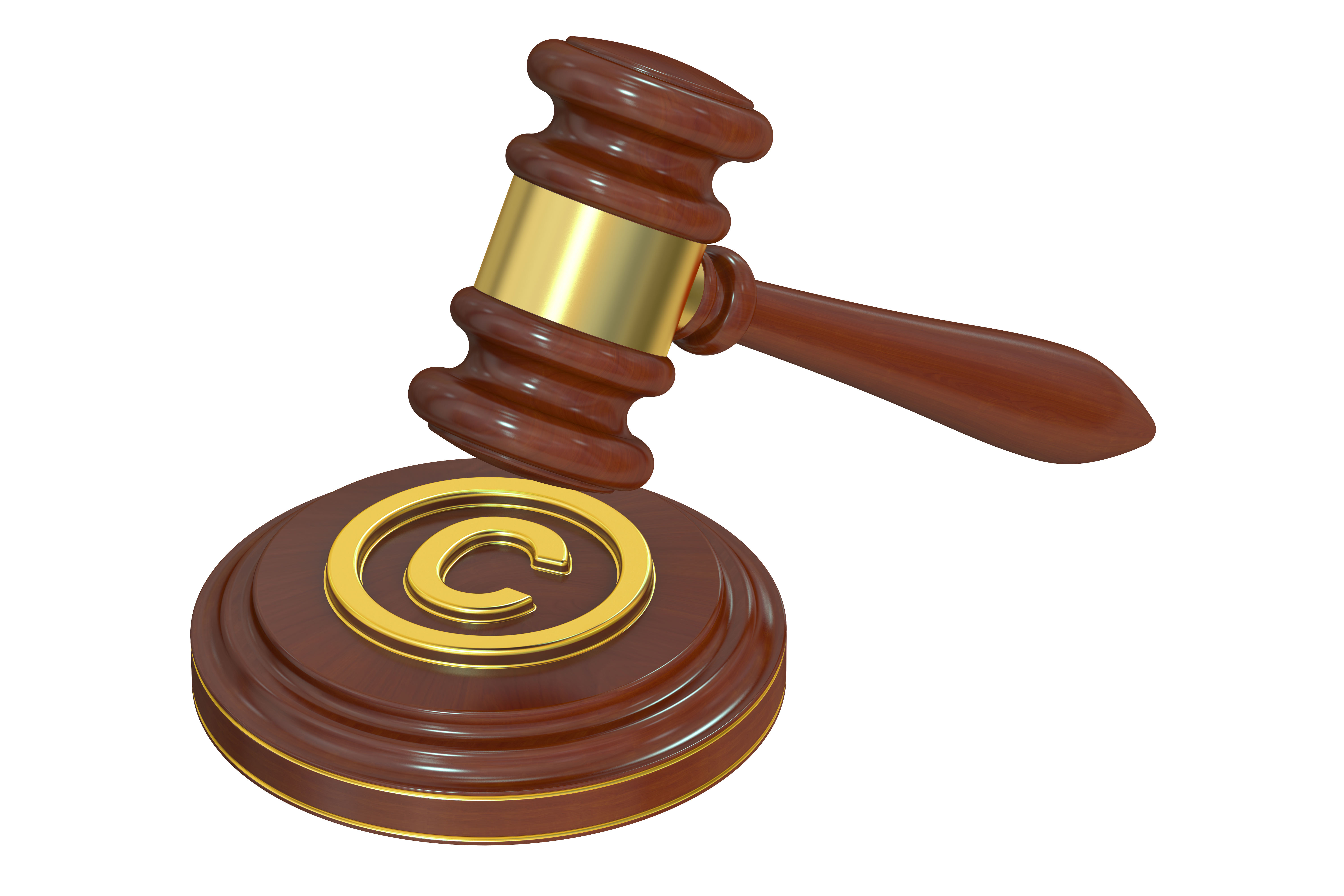“A problem for creative people is that the infringer will roll the dice and opt out, hoping that a federal suit will not be filed…. For small businesses, the CASE Act makes it easier for trolls to collect damages.
 Creative people need a quick, efficient and inexpensive way to recover damages for copyright infringement. They need a place to submit their charge of infringement and collect damages. Until recently, their only option was to bring a lawsuit in a federal district court; a process that is complicated, expensive and time-consuming. The Copyright Alternative in Small Claims Enforcement Act of 2020 (CASE Act) gives them another option, but it is problematic.
Creative people need a quick, efficient and inexpensive way to recover damages for copyright infringement. They need a place to submit their charge of infringement and collect damages. Until recently, their only option was to bring a lawsuit in a federal district court; a process that is complicated, expensive and time-consuming. The Copyright Alternative in Small Claims Enforcement Act of 2020 (CASE Act) gives them another option, but it is problematic.
It is also a problem for small businesses, which are at a disadvantage because the act benefits copyright trolls. It creates a new efficient vehicle for copyright trolls to prey on your clients.
The CASE Act
On December 27, 2020 the CASE Act was enacted as part of the Consolidated Appropriations Act of 2021. The CASE Act requires the United States Copyright Office to create a Copyright Claims Board (CCB) to make decisions on copyright infringement damages by December 27, 2021.
What You Should Know
- Damages are capped at $30,000, whether actual or statutory damages.
- Statutory damages are available but capped at $15,000 per infringement with a maximum of $30,000 per case.
- Copyright registration is required to get an award. The minimum to start the process is an application to register your copyright.
- Full statutory damages of $15,000 are available if the work is registered within three months of publication, or before infringement. If the work is not registered by this deadline, you can only get damages up to $7,500.
- The board cannot order injunctions. But, if the infringer agrees to an injunction, the board will consider this in awarding damages.
What Are the Disadvantages?
- The proceedings are voluntary. The defendant can opt out.
- If the infringer opts out, the only recourse is federal court.
- The statutory damages are less than what you might be awarded in federal court. Under the CASE Act, damages can be based on profits or statutory damages up to $15,000 per infringement, but an award cannot exceed $30,000 in a single proceeding. This reduced exposure gives the infringer an incentive to participate in the CCB, since their participation is optional.
- Damages in federal court are $750, up to $30,000, per infringement, and up to $150,000 for willful infringement.
- The board cannot award attorney fees unless there’s a showing of bad faith, and then the maximum is $5,000 absent extraordinary circumstances. Federal courts have the discretion to award all your legal fees.
The Problem for Copyright Owners
The opt-out provision is a problem for creators. The CASE Act allows an infringer to opt out of the proceeding within 60 days (17 USC 1506(i)). If they opt out, the claimant has to proceed in federal court.
A strategy for the well-heeled would be to opt out. This forces the copyright owner to file a federal lawsuit. But there’s a good possibility they will not file because of the cost and complexity. This goes against one of the main goals of the CASE Act—to provide a simpler venue to those who need it the most.
Late Filing Copyright Registrations
Opting out is almost certain if the copyright registration wasn’t timely filed. A timely filed copyright registration gives the owner the ability to elect statutory damages, which is a powerful tool.
Under the act, a creator who failed to timely file for registration is still able to obtain damages of up to $7,500. But, by opting out and forcing a federal court case, actual damages have to be proven. In most such instances, opting out will be the best option for the infringer.
Copyright Trolls: A Growing Problem for Businesses
The CASE Act is a windfall for copyright trolls. Trolls, as I use the term, are businesses that search the internet for anyone who has, for example, cut and pasted images without a license. Their search engines crawl 24 hours a day, seven days a week, and regularly catch infringers.
Images are particularly problematic because they are ubiquitous and easy to cut and paste. Many people are not aware that they’re infringing others’ copyrights. I often hear people in my seminars say that they believe images are free to use if they don’t have a copyright notice. This is wrong, but still a common misconception.
I speak nationally to business owners about the value of their IP assets, how to protect them, and how to avoid infringement. In every group, there are always a few people who have received the dreaded letter from a troll.
Typically, the letter describes the statutory damages available, threatens litigation, and demands payment. The typical demand is between $20,000 and $40,000 per copied image. The troll wants a quick result and will usually settle for a smaller payment to avoid federal court.
The CASE Act will Benefit Copyright Trolls
The risk that a federal judge will award a small amount is too much for most trolls. If they can’t negotiate a payment, they typically give up. They’re relying on high volume and quick payments, not drawn-out lawsuits.
Now, under the CASE Act, they can get a judgment with little expense. If their letter and negotiations don’t produce a result, instead of giving up, they can get a decision from the CCB; it’s quick, inexpensive and enforceable. The CCB will still have discretion as to the amount, but the costs (and therefore the risk) to get the decision will be minimal.
The CCB Could Limit Trolls
The troll problem may be dealt with by the CCB. There is a provision that allows the CCB to limit the number of filings by the same claimant per year. A limit on filings would be a good way to protect against the troll concern. At a minimum, it would require them to be careful when they choose their cases.
The Takeaway
A problem for creative people is that the infringer will roll the dice and opt out, hoping that a federal suit will not be filed. This is highly likely if copyright registration is not timely filed.
For small businesses, the CASE Act makes it easier for trolls to collect damages. In my opinion, this is a problem. The CCB can alleviate this problem by limiting the number of filings, making this less advantageous to trolls.
Your clients can protect themselves by not using images, music, videos, etc., without permission. They should be advised that everything on the internet is owned by someone. If they get that dreaded letter, they need to talk to an attorney who has experience implementing a strategy to send the troll packing. But the likelihood of that happening is less with the new CCB.
Image Source: Deposit Photos
Author: alexlmx
Image ID: 111582128

![[IPWatchdog Logo]](https://ipwatchdog.com/wp-content/themes/IPWatchdog%20-%202023/assets/images/temp/logo-small@2x.png)

![[Advertisement]](https://ipwatchdog.com/wp-content/uploads/2024/03/IP-Copilot-Apr-16-2024-sidebar-700x500-scaled-1.jpeg)
![[Advertisement]](https://ipwatchdog.com/wp-content/uploads/2024/04/Patent-Litigation-Masters-2024-sidebar-early-bird-ends-Apr-21-last-chance-700x500-1.jpg)

![[Advertisement]](https://ipwatchdog.com/wp-content/uploads/2021/12/WEBINAR-336-x-280-px.png)
![[Advertisement]](https://ipwatchdog.com/wp-content/uploads/2021/12/2021-Patent-Practice-on-Demand-recorded-Feb-2021-336-x-280.jpg)
![[Advertisement]](https://ipwatchdog.com/wp-content/uploads/2021/12/Ad-4-The-Invent-Patent-System™.png)







Join the Discussion
No comments yet.